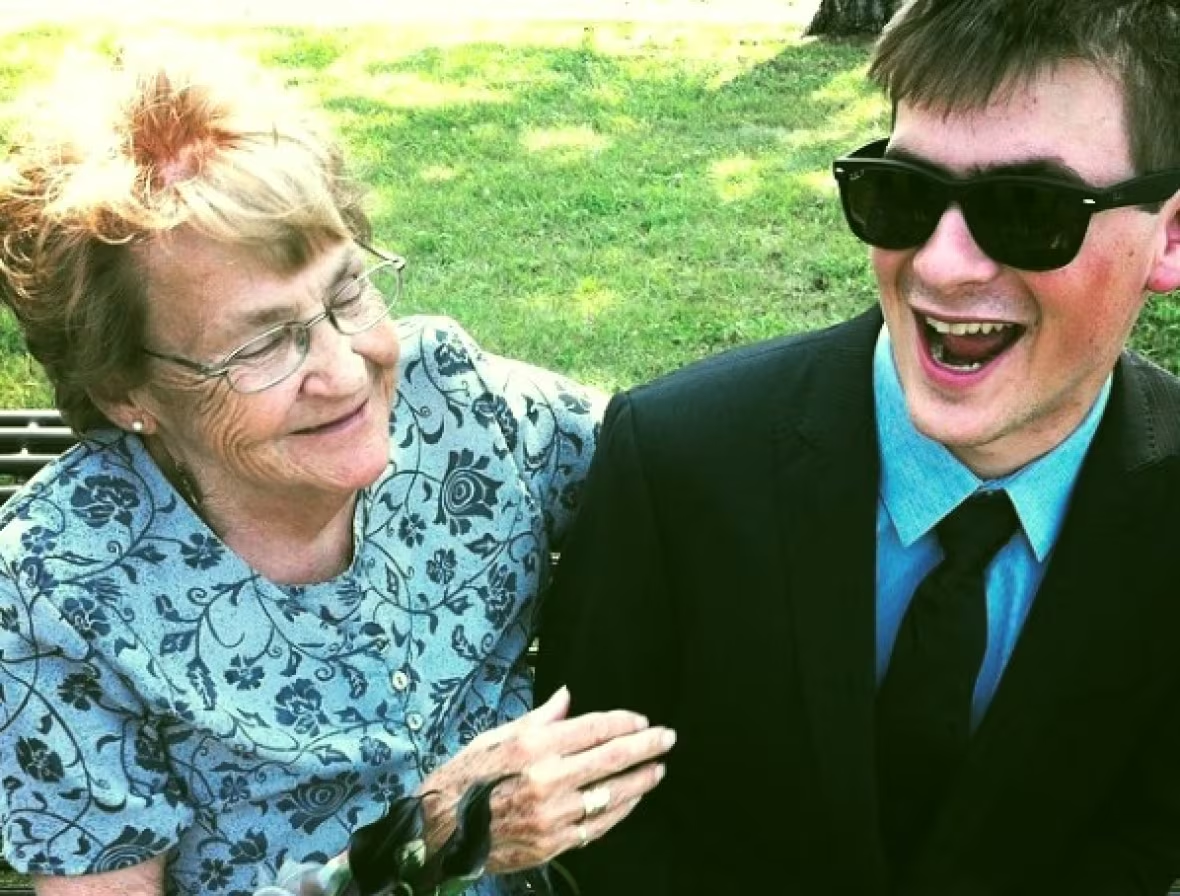We've protected my grandma and older adults from COVID-19, but at what cost?
Families aren’t just ‘visitors’ at long-term care homes; they improve the quality of life for older adults

This column is an opinion by Jordan Grimsley, who is studying social work at St. Thomas University in New Brunswick. For more information about CBC's Opinion section, please see the FAQ.
In recent weeks, many people have asked what we should do with long-term care facilities during the COVID-19 pandemic. Facilities have closed themselves off from the public to ensure that residents are able to self-isolate and practice physical distancing. While this approach has undoubtedly protected older adults, it has come with its own costs.
My grandmother, Fern, currently resides in a long-term care facility in rural eastern Ontario. She is living with Alzheimer's, and often doesn't remember me when I visit. It breaks my heart knowing she doesn't recognize her grandson. As sad as visiting my grandmother can be, there is always a moment where everything feels all right.
It happens when we find time to sing her favourite songs, tell her favourite jokes (she likes the bawdy kind, so I won't repeat them), and when we hold her hand and enjoy each other's company. She might not recognize her family, but these visits are among her most peaceful times.
Sadly, my grandma hasn't had a peaceful time in months. She hasn't held her grandchildren's hands or had her hair brushed out of her face by her daughter. My grandmother's residence has remained untouched by COVID-19. However, to say that she has not been impacted by the pandemic would be grossly misleading. COVID-19 has robbed my grandma of the most precious thing in this world: time with family and loved ones.
The impact has been devastating. In a few months, she has become withdrawn and uncommunicative, silencing those songs we love so much.
My mother has visited with my grandma twice since the COVID-19 shutdown. Each time, their contact has been limited by a Plexiglas barrier, and each time, my grandma appeared more anxious than the last.
She is scared and alone in a world of surgical masks and strangers.

Family and loved ones aren't just visitors. They often provide essential services that long-term care staff are unable to provide because of time constraints and a lack of resources. They are frequently the primary advocates and defenders of residents' rights and are irreplaceable sources of love, support, care and social interaction. My grandma has been robbed of these sources of well-being, and she is not alone in this regard.
Sadly, we likely won't ever know how many of the older adults in long-term care homes who died during the pandemic did so in isolation, alone and with no family around, no one to hold their hand. By keeping families out of these facilities, the quality of life for many older adults is seriously jeopardized. We have protected my grandma and many other residents of long-term care homes from COVID-19, but at what cost?
We're in this place because many long-term care facilities are focused on minimizing risks. How can we keep disease out, how can we prevent accidents, and how can we avoid lawsuits? While this is undoubtedly important, I worry that it misses another important goal: how can we make sure that the lives of older adults are lives they feel are worth living?
To pursue this other goal, I believe we need to ask questions of the residents themselves and their families: what are their needs, wants and aspirations? What risks are they willing to take to live their best lives?
I do not wish to generalize this experience for all older adults in long-term care. Nor do I wish to suggest that we should just give up on preventing the spread of disease or that we should take a laissez-faire approach to providing care. I truly believe that all precautions should be taken to maximize the well-being and safety of older adults in long-term care homes.
However, I want to challenge each of us to re-imagine what long-term care could look like. There is an urgent need for us to reconsider our focus on risk in long-term care at the expense of love and care. Perhaps then, we could begin the process of humanizing these facilities.

- This column is part of CBC's Opinion section. For more information about this section, please read our FAQ.


